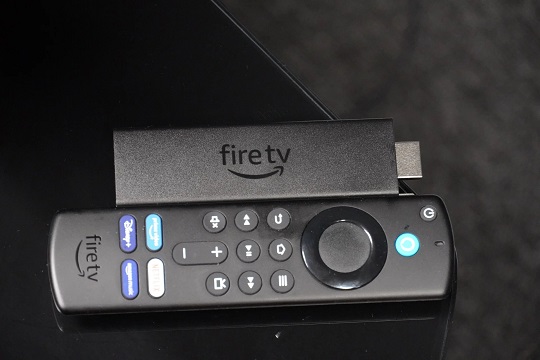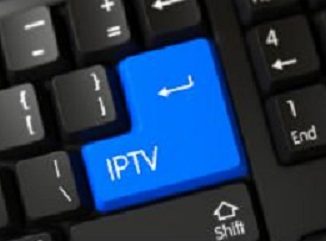
The much anticipated Piracy Shield blocking system is now fully operational according to Italian authorities. The system’s first three official targets appear in legal documents and are web-based, not traditional IPTV providers as some expected. Meanwhile, an operation carried out by over 100 officers to seize contraband from an Italian prison has turned up pirate set-top boxes in prisoners’ cells.
When over 100 officers of Italy’s ‘Penitentiary Police’ carried out a massive anti-contraband operation inside the Velletri prison last week, the spoils were widely reported in the media.
The seizure of a small amount of drugs got a mention, likewise the seizure of six phones, chargers, and a PlayStation console.
But what really sparked imaginations was the discovery of pirate set-top boxes, which apparently allowed users to “access various pay TV contents such as Sky, Netflix, DAZN.”
An image accompanying a Polizia Penitenziaria article raises more questions than it answers. Who would smuggle an Android device in a box that doubles its size? Even without the box, do traditional prison smuggling methods have the capacity to accommodate something of this size?

Fortunately, these aren’t the devices that were actually seized. The pair discovered in the operation were Amazon Fire TV Sticks, which does make a lot more sense, even when bundled with remote controls.
That still leaves the question of WiFi access, let alone WiFi access stable enough to eliminate buffering inside a concrete prison. A smartphone with a WiFi hotspot might suffice but, with up to four years in prison for those caught smuggling illicit items, it hardly seems worth the risk.
Yet, when compared with punishments available under new law passed in Italy last year, which provides for a €5,000 fine and up to three years in prison for watching pirated content at home, it suddenly doesn’t look quite so bad. The bigger question is whether these devices will continue to enjoy a plentiful supply of live streams following the full launch of Italy’s Piracy Shield system late last week.
Piracy Shield Makes Its Grand Entrance
There are no obvious reasons why Piracy Shield shouldn’t meet the expectations of its developers at Sp Tech, a startup linked to the Previti Law Firm. Meeting the standards touted by some of the system’s self-appointed evangelists over the past six months won’t be possible, however.
After launching in December to meet a legal deadline but then not doing very much since, Piracy Shield made its official grand entrance in time for the match between Lecce and Fiorentina at the Via del Mare Stadium on February 2
“The debut of the anti-piracy platform represents for the Serie A, and in general for the entire world of content producers, a fundamental turning point that has been awaited for many months,” said CEO of Serie A, Luigi De Siervo.
Calcio.re, Piracy Shield’s First Official Target
On January 29, 2024, broadcaster DAZN filed what appears to be the first official application for enhanced Piracy Shield site blocking. DAZN wrote that since a significant number of links providing free access to Serie A games were being made available by an illicit streaming site, urgent action was required (translated from Italian).
https://calcio.re is an online platform that allowed the user free access to the matches of the 21st day of Serie A played on January 20 and 21, 2024. The digital works were thus broadcast in violation of copyright law. DAZN is the official licensee of the Serie A matches and Serie B matches.
After highlighting previous infringement of its content, DAZN went on to declare ongoing and systematic violations that warranted an urgent response, including the ability to block any future domains and IP addresses that can be “traced back to the same content and through which the violations take place.”
To show its verification efforts, DAZN provided the site’s email address (@mail.ru), listed its domain registrar as Sarek Oy in Finland (reachable via the email address support@sarek.fi) before mentioning PrivActually Ltd, a Cyprus-registered company available via a Njalla email address.
Calcio.re uses Cloudflare and the CDN service had already provided DAZN with the name of the company providing hosting services (peenq.nl in the Netherlands) and the locations of the servers, most likely in Estonia.
AGCOM granted a blocking order, initially by DNS within 24 hours, and then perpetually by DNS and IP address (Italian, pdf)
Second Official Target: Stream.lc
Also on January 29, DAZN filed a similar blocking application targeting streaming site stream.lc. In common with the previous complaint, the company wrote that infringements were observed on January 20-21, adding that other violations are systematic and ongoing.
Stream.lc’s domain registrar was identified as NETIM SARL of France available through Cloud DNS Ltd in Bulgaria. Cloudflare handed over information in this case too, including contact details for Stream.lc’s hosting provider. Said to operate from Sri Lanka, LankaCloud’s servers are reportedly located in Ukraine
AGCOM granted a blocking order, initially by DNS within 24 hours, and then perpetually by DNS and IP address (Italian, pdf)
Third Official Target: re-fast.myworldiptv.xyz
On the same date, Serie A filed a blocking application of its own against re-fast.myworldiptv.xyz. The site’s domain registrar was identified as GoDaddy, with Cloudflare providing reverse proxy services.
Cloudflare identified hosting services company BestDC Limited based in the Netherlands, and an email address at serde.ch where myworldiptv.xyz is believed to have its servers. AGCOM issued a blocking order (pdf, Italian) substantially similar to the pair mentioned above (translated from Italian).

Successful Launch or Complete Failure?
Since a complete blackout of pirate IPTV services had been predicted by some proponents, when that failed to emerge during the past few days, social media commentary inevitably characterized that as an overall failure.
The reality is that such extreme positions will never find common ground; 100% perfect and immediate blocking is impossible but more importantly, only people who enjoy failure launch a system like Piracy Shield and go flat out on day one. In a statement issued yesterday, telecoms regulator AGCOM didn’t name any of the platforms already blocked, but did offer some numbers.
“As of Friday, Feb. 2, 65 DNSs and 8 IP addresses illegally broadcasting the matches of the 23rd day of the Serie A soccer championship were blocked within thirty minutes of being reported through the Piracy Shield platform.”
Finally, it can be quite interesting to see how pirate sites respond to anti-piracy measures. Here’s a non-comprehensive overview for calcio.re. Some responses may have been pre-prepared or previously available as an option, but if nothing else, blocking appears to be an irritant most platforms can do without.

Source:






Be the first to comment